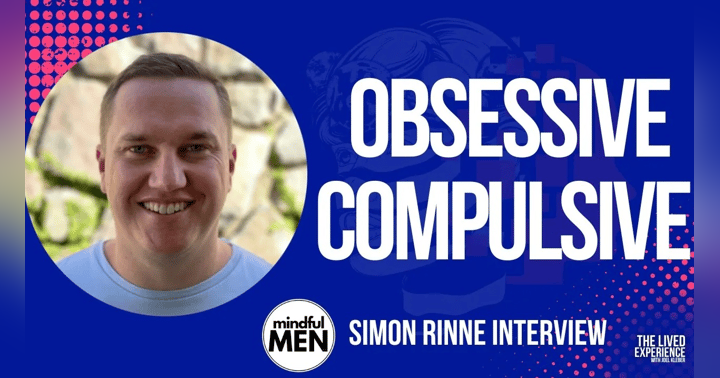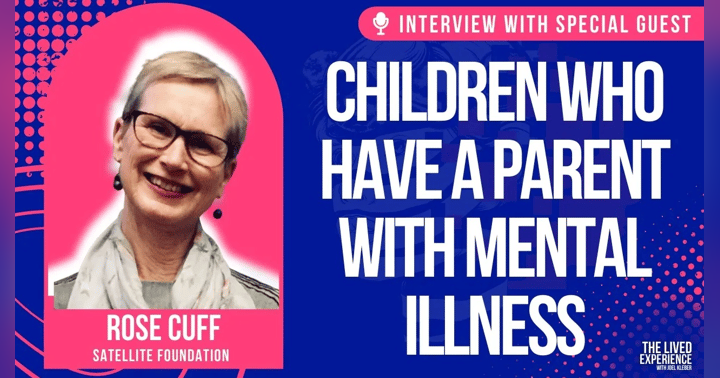A Mental Health Nurse’s Mission to Enhance Patient Care in Australia, Interview with Georgia Livingston Part 2

A Mental Health Nurse’s Mission to Enhance Patient Care in Australia
In an eye-opening conversation with Joel Kleber, Georgia, a passionate mental health nurse from Australia, brings to light the critical aspects of mental health care. By sharing her insights and experiences, she emphasizes the need for early intervention, compassionate care, and the importance of listening to patients.
Through this blog post, we aim to raise awareness about mental health and explore the systemic changes needed to offer a helping hand to those battling mental health issues in Australia.
View the episode here.
Unveiling the Champion: Meet Georgia, the Mental Health Nurse
Georgia is more than just a nurse; she’s an advocate for change in the mental health care sector in Australia. With significant experience under her belt, she has dedicated herself to understanding her patients and their past experiences.
She has been at the front lines, providing care to those battling various mental health issues, such as depression, anxiety, and bipolar disorder. Her experiences have not only sharpened her clinical skills but have also shaped her approach to patient care.
Georgia's commitment to her patients extends beyond the walls of the hospital. She is an active member of various mental health organizations and participates in community outreach programs.
By engaging with patients in diverse settings, she has gained insights into the barriers that prevent individuals from seeking the help they need. Lack of awareness, societal stigma, and limited access to resources are some of the critical challenges she aims to tackle.
One of the remarkable aspects of Georgia's practice is her emphasis on personalized care. She believes that each patient is unique and that mental health care should be tailored to meet the specific needs of the individual.
This involves not only medical treatment but also counseling, social support, and sometimes alternative therapies. She is an advocate for mental health education as a means to empower patients to take an active role in their own recovery.
Moreover, Georgia understands the importance of looking into the past experiences of patients. She insists on spending time with her patients to explore their backgrounds, as this often uncovers underlying issues or triggers that can be addressed in treatment.
This holistic approach ensures that not only are the symptoms treated but also the root causes.
In her conversation with Joel Kleber on The Lived Experience podcast, Georgia highlights the vital role of communication skills in mental health nursing. She points out that being able to effectively communicate with patients is as crucial as any clinical skill. Building trust and rapport with patients enables them to open up, making it easier to provide the support they need.
Notably, Georgia is also passionate about mentoring and training aspiring mental health professionals. She feels that the future of mental health care relies on well-trained, compassionate individuals who are willing to go the extra mile for their patients.
Georgia’s multifaceted approach to mental health care embodies the essence of what it means to be not just a healthcare provider, but a true advocate for mental health.
Her relentless dedication serves as an inspiration for both current and future professionals in the field. Through her ongoing efforts, Georgia is making a tangible difference in the lives of countless individuals and contributing to the broader goal of transforming mental health care in Australia.
Unraveling the Roadblocks: Addressing Challenges in Mental Health Care
One of the core issues that Georgia addresses is the over-prescription of medication and the pressing need to explore alternative therapies. This crucial insight reflects a common concern in mental health care.
She notes that medications, while often necessary, are sometimes prescribed without thorough evaluation or consideration of other viable treatment options. This trend not only can have side effects but may also fail to address the underlying causes of mental health issues.
Understanding the Patient Perspective
Georgia passionately speaks about the significance of listening to patients.
She believes that for a mental health care professional, it is essential to recognize the importance of the patient’s voice in the healing process. Patients often possess insight into their conditions and can provide valuable information that contributes to a more effective treatment plan.
When healthcare providers take the time to listen, it can empower patients, making them feel valued and respected.
Alternative Therapies: Beyond Medication
Furthermore, Georgia sheds light on the value of considering alternative therapies in mental health care.
She stresses that mental health issues are complex and multifactorial, and what works for one individual may not work for another. Integrative approaches such as counseling, psychotherapy, lifestyle changes, and sometimes even complementary therapies like yoga or mindfulness meditation can play a significant role in managing mental health conditions.
Georgia argues that adopting a more holistic approach to treatment can often lead to more sustainable outcomes.
Creating an Inclusive Care Plan
Involving patients in creating their own care plan is another vital aspect that Georgia brings attention to. She believes that when patients are actively engaged in the decision-making process regarding their treatment, it fosters a sense of ownership and commitment to their recovery.
This inclusive approach can improve adherence to treatment and promote a more positive therapeutic relationship between the patient and healthcare provider.
Community Support: Building a Strong Foundation
Another critical component of mental health care that Georgia advocates for is the establishment of robust community support systems.
This includes not only support groups but also educational programs, easy access to mental health resources, and creating environments where individuals feel safe to discuss their mental health without judgment.
Community involvement can significantly reduce the stigma associated with mental health issues and ensure that individuals who are struggling have a support network they can rely on.
Utilizing Technology for Better Access
In this modern age, Georgia emphasizes the potential role of technology in enhancing mental health care access.
Telehealth services, online counseling, and digital mental health resources can bridge the gap for those who may not have easy access to in-person services. This is particularly relevant for individuals living in rural areas or those who, for various reasons, find it difficult to seek help in traditional settings.
Early Intervention: The Key to Unlocking a Healthier Future for Youth
Georgia is steadfast in her belief that early intervention, especially among the youth, is essential in combating mental health issues. Drawing parallels with the UK, where 50% of all mental illnesses begin before the age of 14, she believes a similar trend exists in Australia.
Through her extensive experience as a mental health nurse, Georgia has observed firsthand the critical role that early detection and intervention play in altering the trajectory of mental health conditions in young individuals.
Understanding the Vulnerabilities of Youth
The first step in understanding the importance of early intervention lies in recognizing the vulnerabilities that young individuals face.
The transition from childhood to adolescence is often marked by numerous changes – both physically and emotionally.
Georgia points out that these changes, coupled with societal pressures, academic demands, and the struggle with identity formation, can often leave young individuals feeling overwhelmed and anxious.
The Power of Education and Awareness
One of Georgia’s key focal points is the education of young individuals about mental health. She emphasizes the need for schools and communities to actively engage in educating the youth about mental health issues and the importance of seeking help when needed.
The introduction of mental health education in the school curriculum can be an empowering tool, equipping students with the knowledge and understanding needed to recognize and address their own mental health needs.
Equip The Youth with Coping Mechanisms
Moreover, Georgia advocates for teaching coping mechanisms to young individuals.
By providing them with practical tools and strategies for managing stress, anxiety, and other mental health issues, we empower them to take charge of their own mental well-being. These coping mechanisms can range from relaxation techniques and mindfulness to time management skills and healthy communication strategies.
Supporting Identity and Social Issues
Georgia also addresses the necessity of providing support for young individuals grappling with identity and social issues. These may include struggles with self-image, sexual orientation, cultural identity, or social inclusion.
By establishing safe spaces, counseling services, and peer support groups where young people can openly discuss and explore these issues, we can foster an environment of acceptance and understanding.
The Role of Family and Community
Family support is a vital component in early intervention. Georgia encourages families to be vigilant, open, and supportive when it comes to their children's mental health.
She urges parents and guardians to educate themselves about mental health issues and to create a home environment where open communication is encouraged. Moreover, community engagement, through local programs and events focused on youth mental health, can create a larger support network.
Using Technology to Reach the Youth
Recognizing that young individuals are highly engaged with technology, Georgia suggests harnessing the potential of digital platforms to reach out to them.
Apps, online forums, and social media can be effective tools in raising awareness, providing information, and connecting young people with resources and support for mental health.
Georgia’s emphasis on early intervention as a cornerstone for a healthier future generation is both inspiring and imperative. Through education, support, and the provision of coping tools, society can play a pivotal role in reducing the burden of mental health issues among the youth.
By concentrating efforts on the younger generation, we lay the foundation for a future that is more conscious, compassionate, and equipped to tackle mental health challenges head-on. This vision for early intervention sets the stage for a transformative approach to mental health care in Australia and beyond.
Conclusion: Charting a Course Toward Enhanced Mental Health Care in Australia
Georgia’s enlightening discussion with Joel Kleber serves as a reminder of the critical need for improvements in mental health care.
By emphasizing early intervention, listening to patients, and pushing for holistic care, she charts a course for a better mental health care system in Australia. As a society, it’s our collective responsibility to support these efforts and advocate for systemic changes.
Through continuous dialogue, education, and awareness, we can usher in a new era of compassionate and effective mental health care. Together, we can make a difference in the lives of those facing mental health challenges and ensure a healthier, happier future for all.
Follow The Lived Experience podcast’s social media pages
Facebook - Instagram - Twitter - LinkedIn
Subscribe to The Lived Experience Podcast Below
Hosted by Joel Kleber









